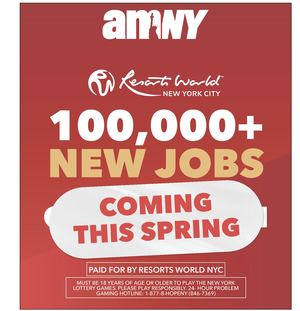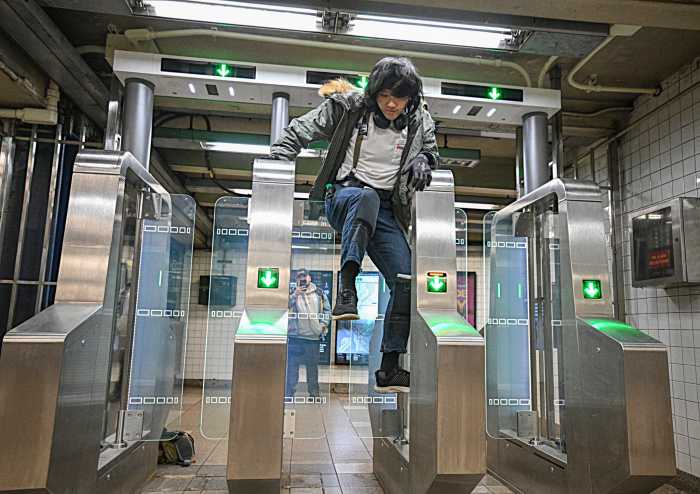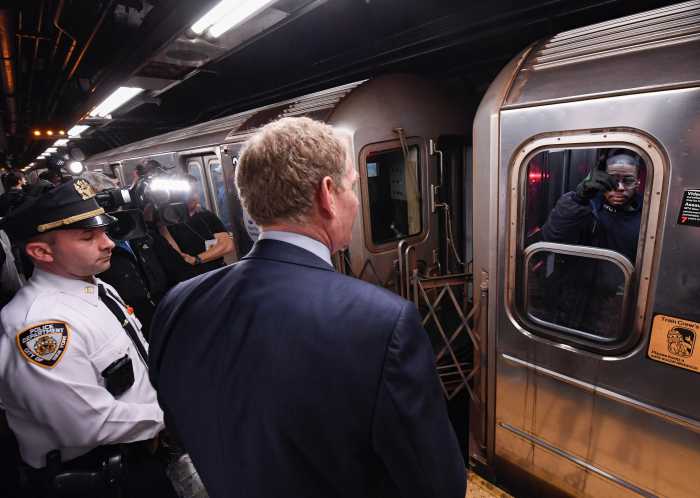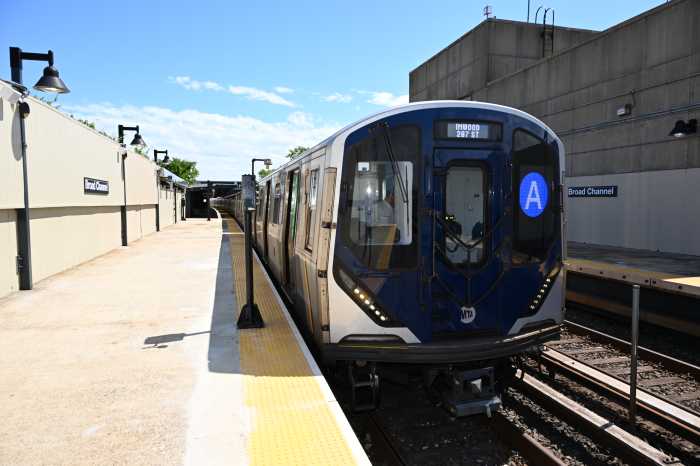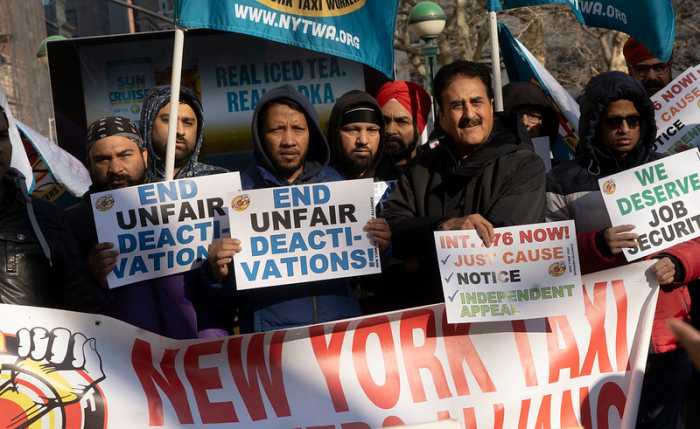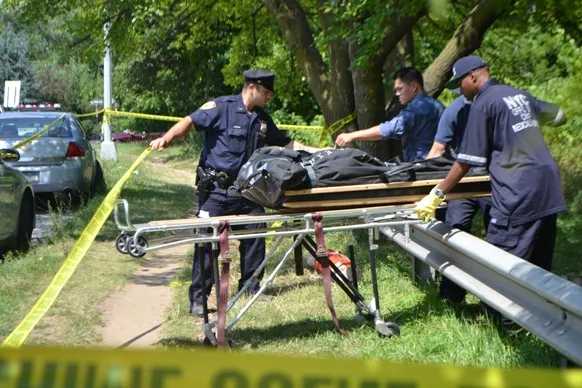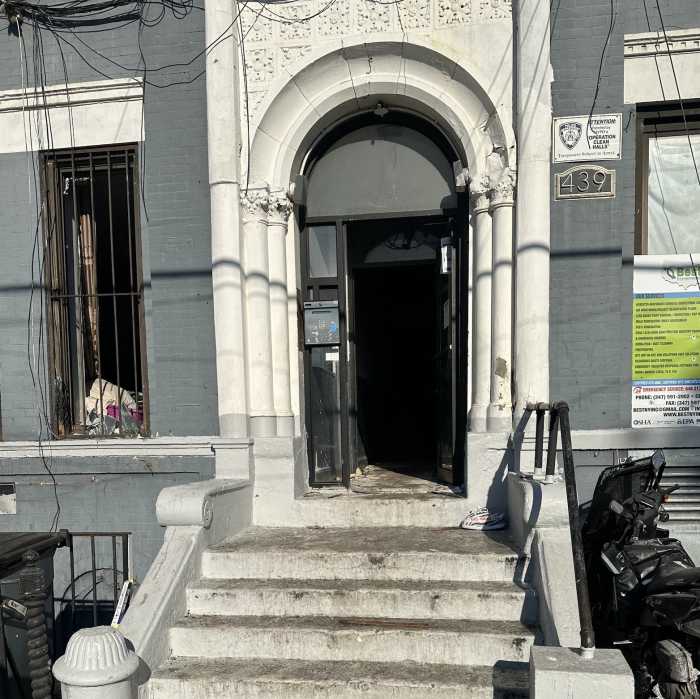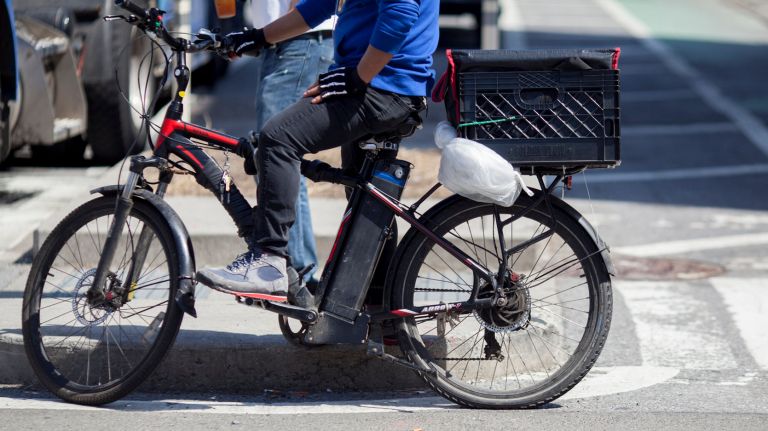
Mayor Bill de Blasio’s police crackdown on illegal e-bikes is at odds with the data, according to a new analysis.
The mayor has over the years repeatedly described the battery-powered bikes, popular among immigrant delivery workers, as a serious danger on city streets — though the city’s own data prove otherwise, according to the analysis from the Legal Aid Society and advocacy group Biking Public Project.
E-bikes were the cause of 32 traffic injuries in 2018 — just .05% of the 61,939 reported injuries on city streets, the groups found in a review of NYPD data on crashes. The bikes were the determining factor in just 31 of the reported 45,775 motor vehicle collisions that resulted in injuries, according to the analysis. Streetsblog first reported the news.
The data infuriated advocates who have described a mayor who billed himself nationally as a proud leader of a “sanctuary city,” while simultaneously creating a hostile environment for its working-class immigrants delivering food.
“For the mayor and NYPD … to go on and on about the delivery workers on e-bikes — and they have this data — it’s appalling. It’s fear mongering about immigrants at its worst,” said Do Lee, the organizer at Biking Public Project, who reviewed city crash data with Alex Rhodd at the Legal Aid Society. “It’s been a big source of frustration for us: the mayor claiming the city as a sanctuary city, yet at the same time the police practices have been incredibly hostile toward immigrants.”
De Blasio’s administration had also said repeatedly not to collect crash data granularly enough to track the involvement of e-bikes in injuries or fatalities, but the data show police used various different codes to log the bikes in crash reporting.
“I was angry, to be honest, because the city kept saying that this was dangerous; that this was a public safety problem and the reporters and advocates kept asking for this data — and they’ve had (it) all along and refused to talk about it,” Lee said.
Delivery cyclists view the bikes as a vital tool for low-paying, physically demanding jobs. The motors help ease the strain that comes with biking dozens of miles each day, allowing them to work longer hours or into older age.
Last year, de Blasio clarified local laws to allow for large bike share companies to roll out a specific kind of pedal-powered e-bike, known as a pedal-assist bike. But the throttle variety used by delivery workers remains in legal limbo. The federal government allows their sale, though they are not allowed to be ridden on state roads.
Various other states, like California and Massachusetts, have legalized the throttle bikes. Lawmakers at the state and city levels in New York have pushed legislation to legalize specific throttle bikes, though language in Gov. Andrew Cuomo’s proposed budget to do so was eventually scrapped.
At an unrelated news conference Thursday, De Blasio refused to back down from his aggressive policing against the bikes, citing anecdotal evidence of e-bikers disobeying traffic laws.
“We’ve got a class of … e-bikes that go way too fast, where there’s plenty of evidence of them being used in a manner that’s reckless, that doesn’t conform to the way all the other types of transportation work,” de Blasio said.
“They don’t conform to the way, you know, a car, a truck, a motorcycle would to traffic rules. It’s just a known fact,” the mayo said. “You don’t tend to see motorcycles going the wrong way on a street, or sometimes going on the sidewalk. You do with e-bikes. And it’s just a different reality. And I think it’s a problematic reality.”
He added that he was sympathetic to the concerns of immigrant delivery workers but that traffic safety was the highest priority.
Lee said New York State should legalize e-bikes by creating classes of bikes and e-bikes, by motor and speed. De Blasio and police appear to have been reacting primarily to complaints of e-bike riders traveling the wrong way on one-way streets or on sidewalks.
“People often express discomfort when they see a new type of mobility, a new type of vehicle in the street. It changes the way we have to negotiate the street,” Lee said. “But we shouldn’t play to our fears — especially about immigrants under this national climate.”
